Discover the truth about travelling to Russia and debunk popular myths. Explore the safety, ease of obtaining a Russia visa for Indians, affordability, and friendliness, highlighting why Russia is a top destination for 2024 and 2025.
On September 21, 1995, a devotee in Delhi sparked a frenzy by claiming a Ganesha statue miraculously drank offered milk. The phenomenon spread globally, triggering debates between science and belief. Rationalists attributed it to “surface tension” and “capillary attraction,” while then Central Minister Sitaram Kesari accused Hindu right-wing groups of exploiting the rumour for electoral gains. This incident, predating today’s social media age, exemplifies how fake news spreads faster than truth.
A 2018 study revealed fake news spreads six times faster than real news, amplified by the illusory truth effect. In the digital age, platforms like Facebook, Google, and Twitter inadvertently become conduits for misinformation, shaping public perception. Amid the cacophony of an America-centric narrative, Russia is often shrouded in conspiracy theories and portrayed as a perilous haven. To challenge these myths, as an Indian traveller, I travelled to Russia to distinguish fact from fiction and unveil the truth behind common misconceptions, all while navigating the process of obtaining a Russian visa for Indians.
Myth – It is unsafe to travel in Russia
Long before the Russia-Ukraine War, there was a prevalent belief that travelling in Russia was unsafe for tourists. Contrary to this misconception, my personal experiences challenged this myth. I utilised public transport, journeyed through big and small cities via overnight trains and buses, lodged in both five-star and budget hotels, explored local and luxury markets, dined in international and traditional cuisine restaurants, and even celebrated New Year with strangers in St. Petersburg. Throughout these experiences, not once did I feel unsafe.
Travelling in Russia mirrors the safety standards found in any European destination. While there might be a heightened presence of security personnel compared to Western countries, it paradoxically contributed to a sense of safety rather than the opposite.
Myth – Traveling in Russia is very difficult for foreigners
Before I landed in Russia, I was made to believe that sailing through Russian waters would be challenging. But guess what? It was the quiet opposite. An easy Russia Visa for Indians through an e-visa process made it simple for Indians like me to make our Russian travel plans a reality. It took all it took to submit my passport copy, a $54 fee, and some straightforward documentation. In four days, I had the Russia e-visa in my inbox. Even a friend with a UK visa got his business visa within two days of submitting his application at VFS Delhi.
The ease of travelling continued with the visa. Booking hotels in cities like Moscow and St. Petersburg using my credit card through websites such as Ostrovok.ru and Booking.com was seamless.
The Aeroflot direct flight from Delhi to Moscow ensured I didn’t waste any precious time in layovers. I didn’t even have to bring Rubles with me. Exchanging my US dollars to Rubles was easy everywhere – hotels, markets, pubs, and restaurants. I could use the local cab service, Yandex, without any issue. Google Maps and Google Translate helped me navigate the Russian cities with ease. I had English-speaking guides, Daria, Timur, and Olga, who ensured I faced zero issues in the country.
While international credit cards currently don’t work in Russia, the country is working on introducing a prepaid tourist card that tourists could preload before arriving and use freely throughout the country. Hopefully, it will be launched in the first quarter of 2024.
Myth – War has broken the Russian economy’s backbone
Following the 2022 Ukraine-Russia war, more than 30 nations imposed sanctions on Russia in an attempt to cripple its economy and coerce a halt to the conflict. Despite these measures and ongoing inflation, the Russian economy displayed resilience, registering a robust 3.5% growth in 2023, with manufacturing seeing a substantial 7.4% increase. Profits from oil and gas exports continued to bolster Moscow’s economic stability, fostering the viability of ordinary life in Russia amid the conflict.
Despite the withdrawal of top global brands from Russia, goods remain accessible through the “parallel imports” scheme, covering electronics, Apple smartphones, furniture, watches, cars, ships, heating equipment, weapons, ammunition, and nuclear reactors. Notably, 1.1 million iPhones were imported into Russia during the first two quarters of 2023, a 15% increase from 2022.
To fill the void, look-alike brands emerged—Vkusno & Tochka succeeded McDonald’s, Krunchy Dream replaced Krispy Kreme, and Stars Coffee stepped in for Starbucks.
Contrary to expectations, life in Russia has persisted almost unchanged since February 24, 2022. I saw Christmas markets, malls, hotels, and airlines bustling with people. Restaurants were filled with patrons, and the streets were adorned with festive lights. Despite concerns about inflation, life remains relatively normal for Russians, as observed in the altered holiday plans of locals like Olga, who now chooses destinations like South Africa and Sri Lanka over Italy due to soaring flight costs – a consequence felt globally. Thus, aside from the universal impact of inflation, life in Russia stands resilient amid challenging circumstances.
Myth – Russians are very rude and unfriendly
Hollywood and Western press have consistently and overtly demonised the Russians as villains since the days of the Cold War. A myth, if widely accepted enough, can become real. Unfortunately, that has happened with Russians. As a result, most foreigners perceive Russians to be cold and unfriendly. Although I would say, it’s a difference in cultures. Upon arriving in Moscow, I noticed that Russians never smile back at you. At first, I thought they were rude by not responding to my smile. Later, my tour guide, Timur explained the reason behind this non-smiling culture,
People are not rude or unfriendly here; they are just being Russians. In Russian culture, showing a lot of emotion or smiling at strangers is considered odd and even impolite.
Over the next two weeks, I realised that not smiling at strangers doesn’t mean Russians are not helpful or kind. On the contrary, I saw the opposite. Russians are mostly warm, friendly, and quite funny once you break the ice! My local friend said Russians are like coconuts — hard on the outside but soft inside. Once you break the hard shell, you get everything! This is definitely accurate. Whether it was a salesperson at Izmailovsky Market in Moscow or a receptionist at a hotel in St. Petersburg, people were generally helpful. On an overnight sleeper train, an old couple who didn’t understand English even offered their chocolates to me. When I was short of the local currency, and the banks were closed due to New Year’s, my guide Olga helped me with the cash.
Myth – Russia is very cold, and winter travel is a nightmare
I agree. Russia is one of the coldest countries in the world, but it’s ‘never too cold’ if you’re appropriately dressed. I easily withstood the extreme temperature fluctuations from 4 degrees Celsius to -30 degrees Celsius without falling sick. Far from a nightmare, the Russian winter unfolded as a breathtaking spectacle. Clad in layers of warm clothing and armed with a cup of piping hot Christmas Drink and an explorer’s attitude, the freezing cold was easily manageable. And trust me, it was all worth it in the end! I had been to many Western Christmas markets but had never seen a more beautiful and bigger Christmas celebration than Moscow Season’s Journey to Christmas. The celebrations were not limited to bigger cities like Moscow or St. Petersburg; even small towns like Novgorod were decked up in festive spirit. The snowy landscapes with the colourful festive lighting looked even more surreal.
Myth – Russians drink too much Vodka
Russia and Vodka are often associated with each other, but a deeper truth lies beneath the stories of Vodka freely flowing during the Russian winter. While tradition may connect Russia with Vodka, tea is actually the de-facto national drink and the real antidote to the cold. Russian tea is also very healthy, with a rich history of traditions and variations. Many tea varieties exist in Russia, from traditional Samovar-served tea to modern fruit-based herbal teas. As a tea lover, I enjoyed trying every new flavour I could find and even had the opportunity to learn about authentic Russian tea traditions by attending the Moscow Tea Party at Tverskaya Square. Based on my experience, the culture of drinking Vodka in Russia is less prevalent than many believe.
Myth – Difficult for vegetarians to survive in Russia
As a vegetarian, I was worried about finding enough food options in Russia. However, after exploring the culinary scene, I discovered that there are plenty of international and local restaurants that serve a variety of vegetarian dishes. For example, I enjoyed delicious Mediterranean cuisine at Moro, and I also tried meatless dumplings and pies at the Soviet retro cafe called “Varenichnaya № 1”. I even enjoyed a hot plate of Palak Paneer while wandering the streets of St. Petersburg. In reality, being a vegetarian in Russia is not as difficult as some may think.
Myth – Russia is expensive
Russia is often perceived to be expensive due to its cold climate and proximity to Nordic and Japanese countries. However, I was surprised to discover that everything in Russia is actually great value for money. For example, a glass of wine costs less than $3, and a three-course meal is rarely more than $15. The subway and metro fares are also very affordable, costing around 50 cents. Five-star hotels, like the Moscow Hilton Leningrad, offer rooms for as little as $80 in December. If you need to travel between Moscow and St. Petersburg, an overnight train journey costs only $95. Taxi fares are also reasonable and in line with global standards. Despite its initially cold appearance, Russia is actually a fantastic destination for budget-conscious travellers.
Myth – Russia is backward
Russia is often misrepresented as a backward and impoverished country that is disconnected from the West. However, this image needs to be corrected. Russia has a robust technological infrastructure that has dispelled this stereotype. The public transport system and communication networks in Russia are highly efficient. The Moscow Metro is both a symbol of efficiency and heritage design. Similar to India’s Paytm and China’s WeChat, digital payments are thriving in Russia through Yandex.Money.
Although English may not be widely spoken, English music and culture are quite popular. Despite the bans on Instagram and Facebook, trends continue to flourish on various platforms that use VPNs. Interestingly, younger generations and cool kids prefer Telegram, while WhatsApp is an app for older people who connect with their grandparents.
Moreover, cities like Moscow and St. Petersburg have a European-like cityscape and function similarly to European cities.
After spending two weeks in Russia, I realised that many of my preconceptions were false. The country is much more diverse and welcoming than I had expected. Russia is often misunderstood and reduced to stereotypes, but I discovered a multifaceted nation that invites exploration beyond cliches. As I separated fact from fiction, I came to see Russia as a captivating destination that can rewrite narratives and redefine perceptions.
Russia Travel Tips for 2024 and 2025
Understanding Cultural Nuances
Don’t be too quick to judge people. Before travelling to the country, try to get acquainted with the Russian culture and people. Try to blend in. Don’t expect the people to change for you. As they say, behave like a Roman when in Rome. Russians are mostly warm, friendly, and quite funny once you break the ice!
Russia: The Best Destination to See the Northern Lights in 2024
Russia is also the cheapest destination for seeing the Northern Lights in 2024. In the far north, Murmansk offers an affordable alternative to expensive Scandinavian destinations. With lower travel costs, easy visa options, and incredible Arctic landscapes, Russia has become a top choice for Northern Lights enthusiasts seeking a budget-friendly adventure. Whether you choose a Russia tour package or travel independently, witnessing the Aurora Borealis in Russia offers an unforgettable experience without breaking the bank. Travelling to Russia is more economical than visiting any Scandinavian country such as Norway, Finland, Sweden, or Iceland due to the lower cost of living, accommodation, transportation, and Russian visa fees For Indians.
FAQ: Common Questions About Traveling to Russia
Is it safe to visit Russia in 2024 – 2025?
Yes, Russia is generally safe for tourists, with many experiencing safety on par with other European destinations. When considering Russian travel, safety is often the first concern. The question, “Is Russia safe for tourists?” lingers on many travellers’ minds. Despite common misconceptions, Russia remains generally safe for tourists who follow basic precautions, similar to any other large country. Following standard travel precautions, like avoiding isolated areas at night, will help ensure a smooth trip. And, I must say I felt the Russian tourist safety standards were relatively higher than in most European cities, especially in major cities like Moscow and St. Petersburg, where the police presence is more and crime rates are low.
While it’s true that Russia is dangerous in some regions, particularly near conflict zones, most tourist destinations are far from these areas. Tourists are advised to stay informed about current events and avoid regions with ongoing tensions. So, if you’re wondering, “Is it safe to travel to Russia now?” the answer is yes, provided you stay aware and prepared.
Looking ahead to 2024 and 2025, the travel landscape is expected to be much more inviting, with efforts from the Russian government to boost tourism, including launching a proposed Russia prepaid tourist card to simplify tourist transactions. While uncertainties can never be wholly eliminated, the country continues to work on improving its safety measures, making it a promising destination for travellers.
How easy is it for Indians to get a Russian Visa?
Obtaining a Russia Visa for Indians is straightforward, with Russia e-visa options available for many countries. The application process typically takes just a few days, making Russia an accessible destination for many travellers. While Indians do require a visa to enter Russia, if you live in any of the countries in the following list of countries, you are allowed to travel to Russia visa-free.
Is Russia expensive to travel to?
Contrary to popular belief, Russia is not as expensive as it is often perceived. Accommodation, food, and transportation are reasonably priced, making it an excellent destination for budget travellers. Even the cost of a Russia Visa For Indians is far cheaper than getting a Schengen Visa. And who can forget the torturous process of applying and living in fear of getting your Schengen visa rejected? On the contrary, getting a Russia e-visa is a far easier and peaceful process.
Is Moscow Safe for Tourists?
Moscow, the capital city, is often the first stop for many tourists. In terms of safety, Moscow ranks relatively well compared to other large cities worldwide. The question, “Is Moscow safe for tourists?” can generally be answered with a yes. Stick to well-lit areas at night, avoid protests or demonstrations, and always be aware of your surroundings.
How to Make the Most of Your Russia Travel 2024-2025
As you get ready for your Russia travel in 2024 – 2025, here are a few tips to keep in mind to ensure a memorable trip:
- Russia Visa For Indians: Before booking any accommodation or flights, secure a Russian E-visa.
- Russia travel guide: Investing in a good travel guide like Darja and Timur or using reputable online resources can help you navigate through the best attractions, from the Red Square to the Trans-Siberian Railway.
- Is Russia safe?: Stick to well-known tourist routes and avoid unlicensed taxis to enhance your safety.
- Russia trip cost: Plan your budget wisely. Russia can be affordable or expensive, depending on your travel style. Major cities can be pricey, but exploring offbeat destinations can be more cost-effective.
- Best time to travel to Russia: The ideal time to travel to Russia is during the summer months (June to August) when the weather is mild and the days are long. Winter, especially during the Moscow Seasons, offers a magical festive experience with snow-covered landscapes, but it’s crucial to be prepared for extreme cold.

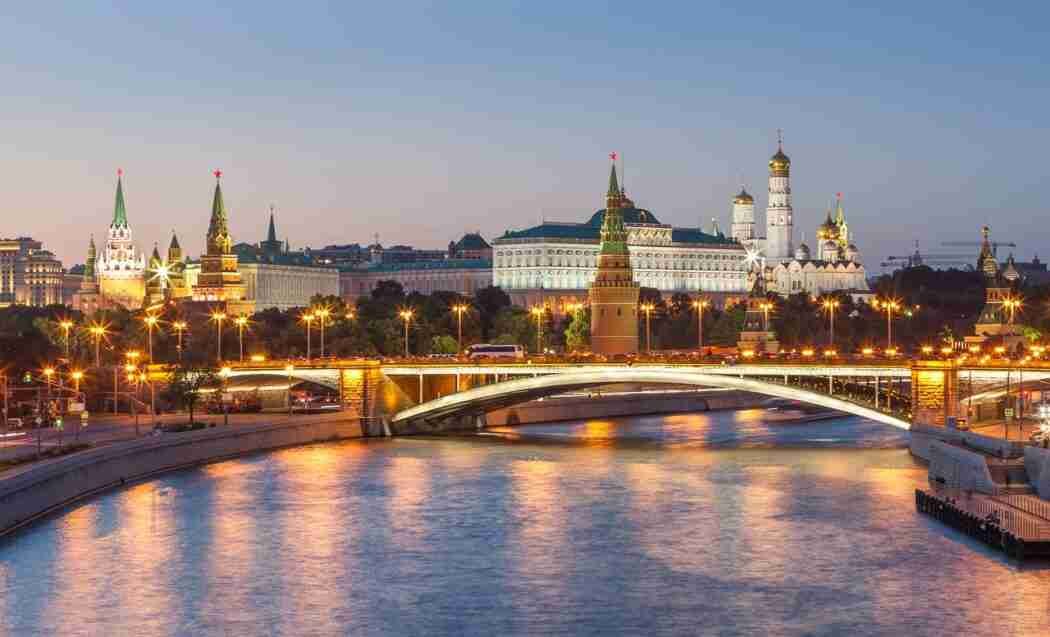


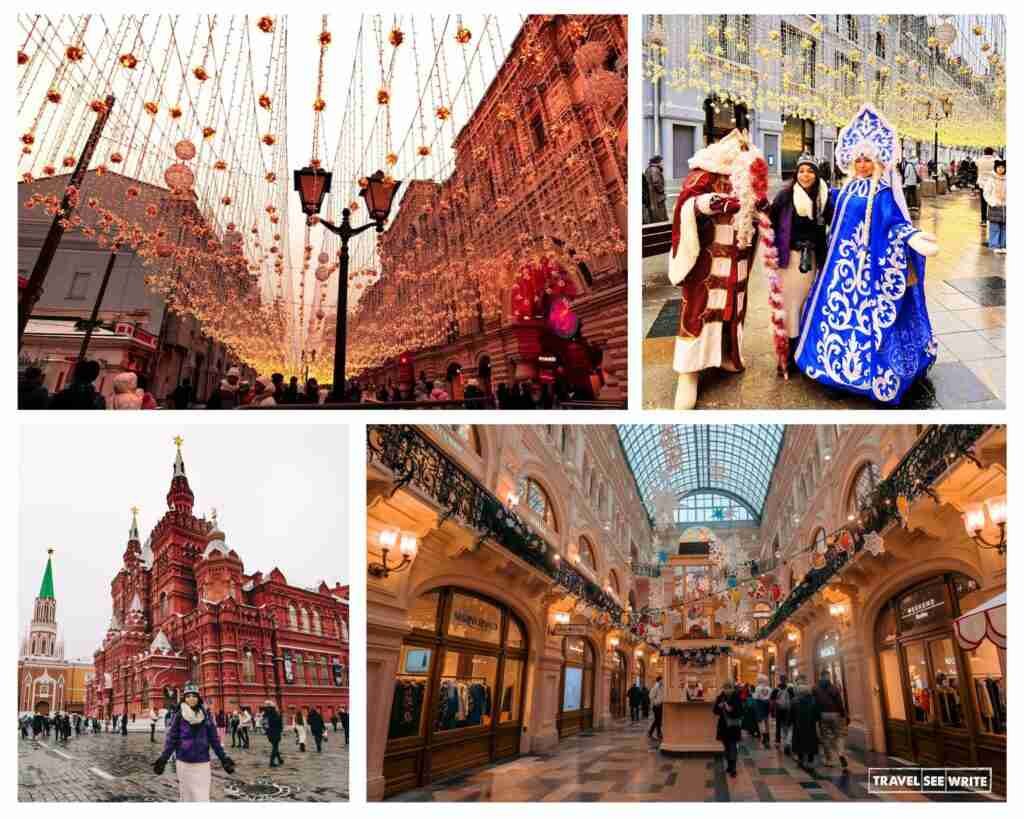

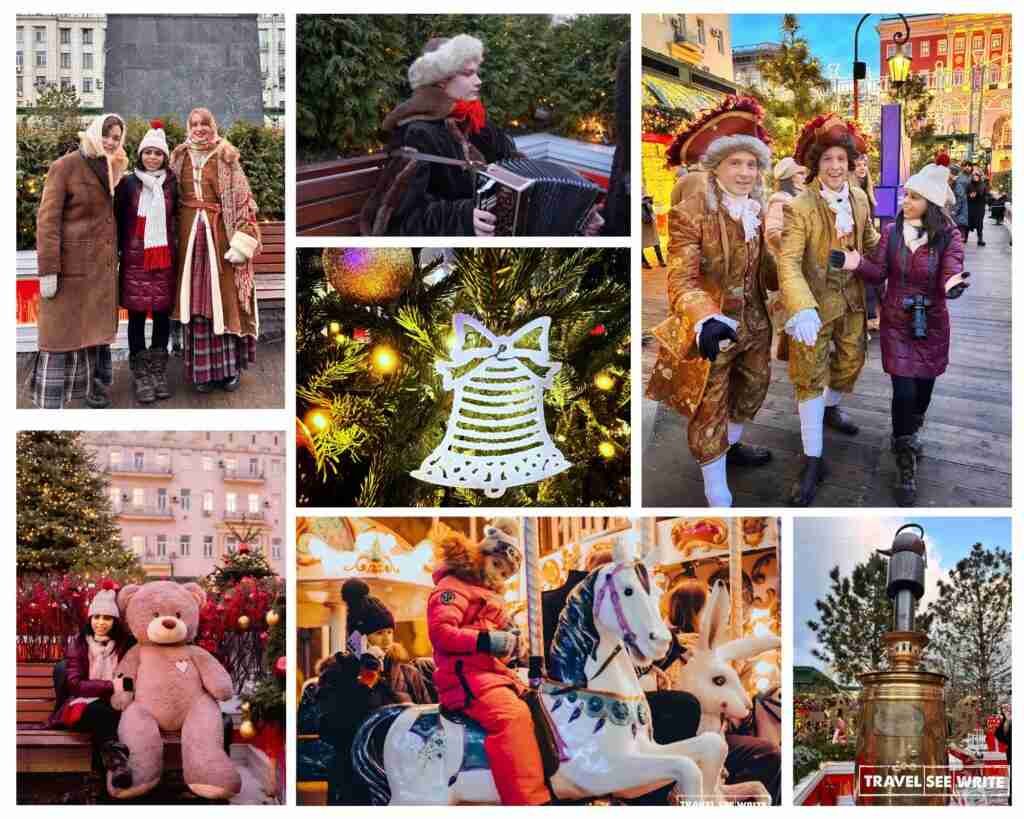


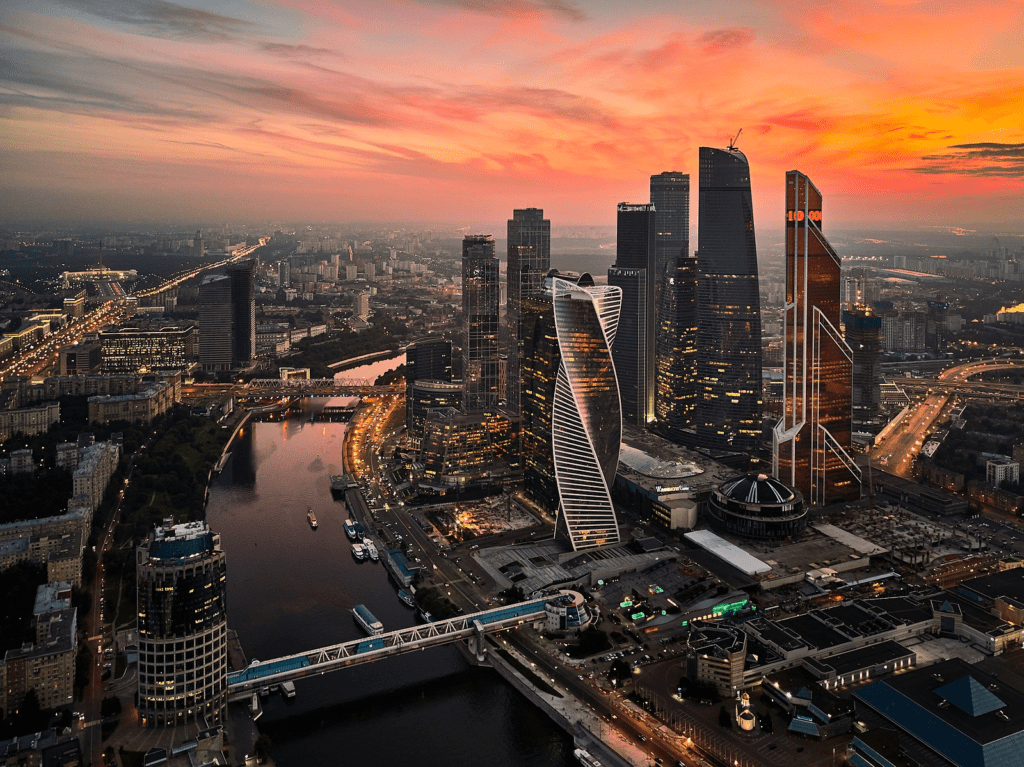
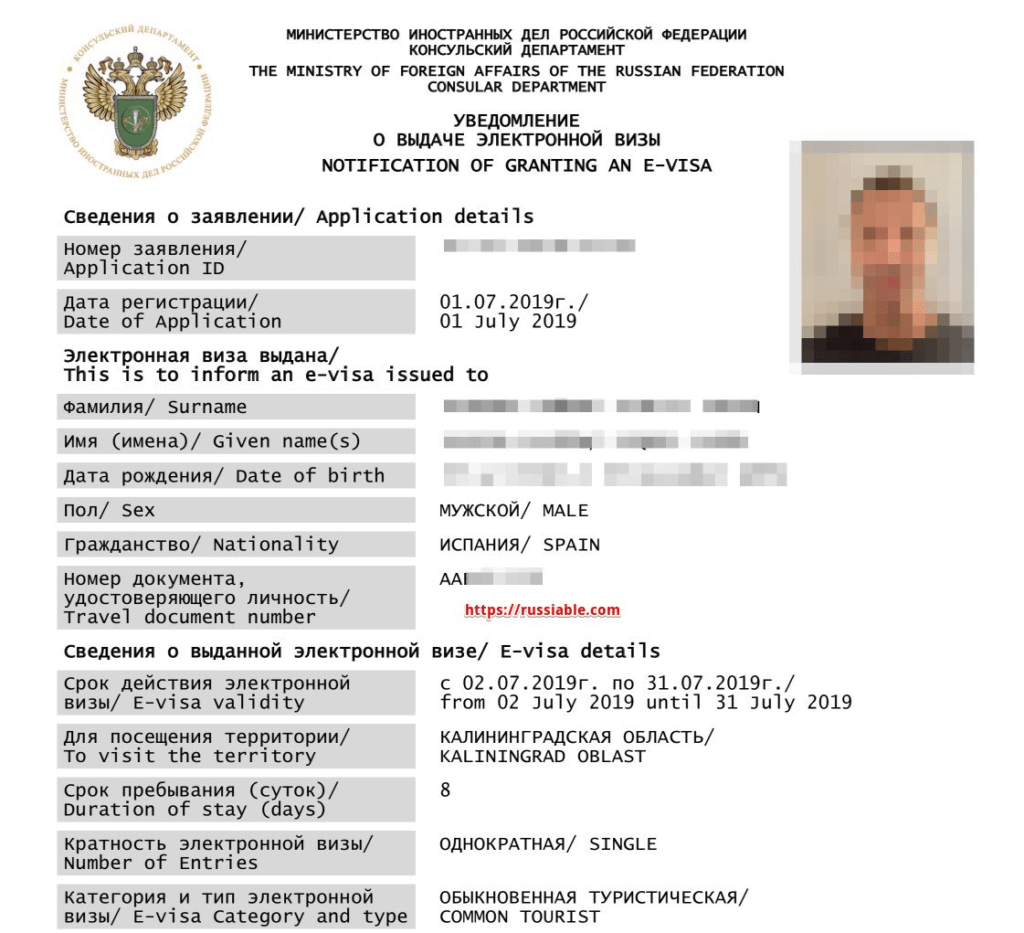

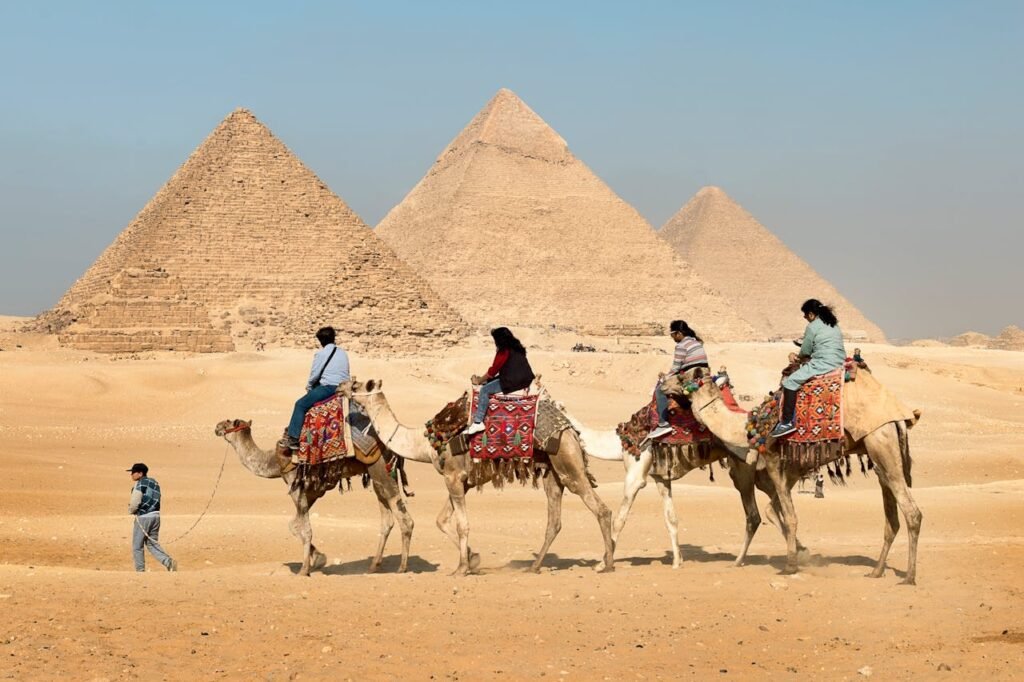

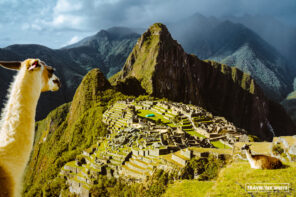

A wonderful post! I’ve always felt that the world’s view of Russia has been distorted by the western countries (for their own agenda). Through their media, they have always portrayed Russia as a dangerous, gloomy, lifeless country. I’m so glad to read your post as it seems to be setting the record straight!